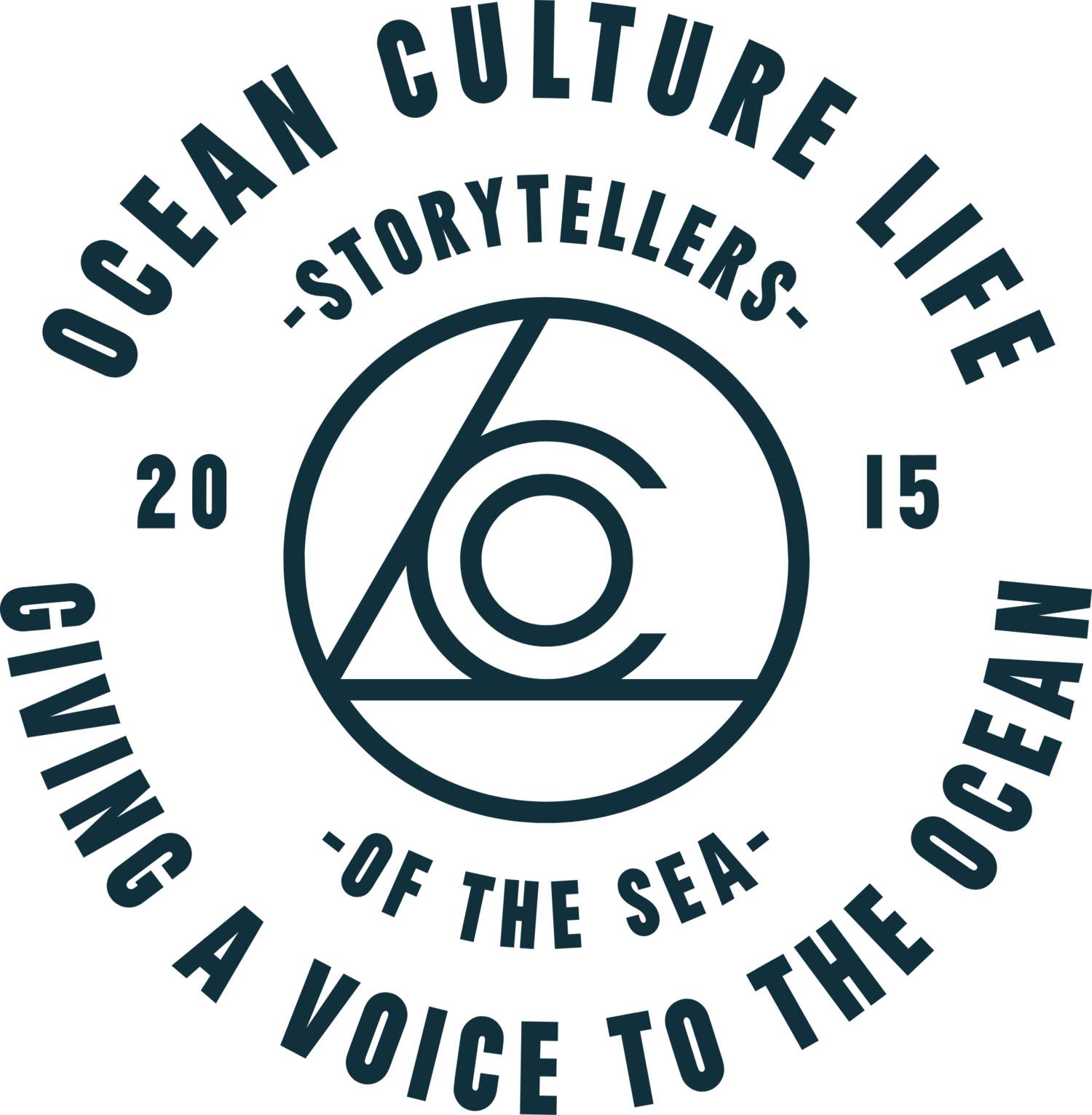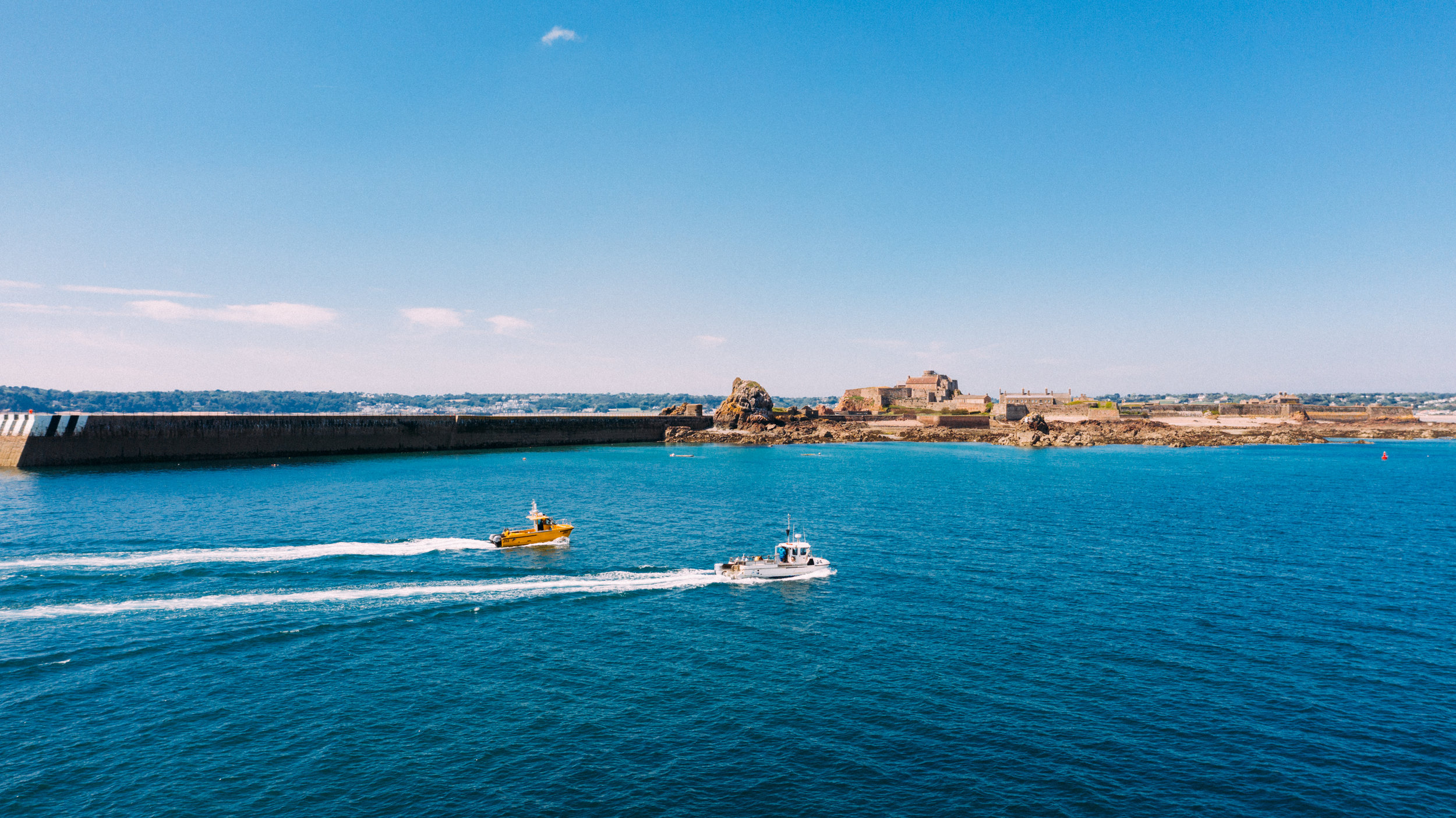Sustainable Fishing in Jersey | Toby Greatcatch
We spent a day out on the Channel waters with Toby Greatcatch and The Jersey Catch, learning all about Jersey’s environmental, traceable and ethical fishing methods.
Fishermen are subject to multiple rules and regulations in Jersey, even down to the type of lobster pots they can use in certain areas. For example, pots with a long net are not allowed in the Minquiers, which gives the lobster a chance to get into the pot but also to escape. This avoids over-catching and allows the juveniles to grow and breed. Although this is positive in the long run, stocks can also be lost in other circumstances, such as when lobster pots get caught in the rocks and the fishermen are unable to pull them up. Matt asked whether this counts as littering in the ocean, but Toby explained that because it is unintentional, and the fact that the pot will wear a hole in it, means that creatures won’t continue being caught and in fact it will most likely become a habitat for many animals.
In Jersey, The Blue Marine Foundation are working to support local fisherman to lead the management of their fisheries in line with conservation. You can learn more about how BLUE are working with the States of Jersey to protect Jersey’s marine life here.
At the moment, Toby said he is catching 40% less crab than three years ago. Samantha Blampied is working to find the reason for this. Naturally, it has made a huge difference to crab stocks which is why crabbing is being monitored much more - even down to the exact centimetre size of the crab. Toby must throw the crab back if it’s not to size, which will enable the young crabs to grow and reproduce and allow stocks to grow.
The team discussed net fishing, which doesn’t always allow for this specific catching; Toby disagrees with it for the reason that nets don’t break down due to the material they are made of, and the fact that they continue to catch creatures even when they are lost in a storm or drag on rocks.
In contrast, there is currently an abundance of spider crabs in the area. There doesn’t seem to be a market for them in Jersey, despite them being delicious; it seems that what we have most of, no one wants, and what we have the least of, everyone wants. In order to adhere to Jersey rules, fishermen must input how much of each species they catch in each quarter. Once this is submitted to the Jersey fisheries, they work out numbers against previous years and fishermen attend multiple meetings a year to discuss and stay on top of this.
As a result of these numbers, changes are slowly being introduced: the Jersey government made it illegal for commercial fisherman to catch bass in 2017, as stocks were depleting so quickly. This ban didn’t, however, include private fishing. This meant that there was no way to record fish stocks, and after this realisation, they have slowly allowed very few commercial fishermen to catch bass again in specific areas.
As of April 2019, one bass may be caught per day for recreational consumption, whilst a small group of commercial fishermen must stick to strict numbers and a closely-monitored management of stocks. In this last two years, many fishermen who previously relied on bass, have become lobster fishermen instead. This may also be a reason for the depletion of lobster stocks - even when they are allowed to catch bass again, they will most likely continue to catch both.
Toby mainly sells his catch to commercial establishments, who can then sell wholesale to restaurants. Although he admits this is a relatively well paid job, he doesn’t receive any backing from the government; they don’t invest much money into the fishing industry, because it only generates approximately £3 million a year. This lack of governmental interest is clear from the fact that in the last three years, the price of a license that used to be free has increased to £42,000 per year. Bigger boats in the UK can buy multiple licenses with their big budgets, then join them all together to fit the specification of their boat, but this means that local Jersey fishermen miss out.
The younger fishermen here want to make changes that improve their future fishing in the Channel, to make things better for future generations - firstly, by looking at the old rules that are still in place from so long ago. For example, French fishermen are allowed into Jersey waters and their amounts of pots are unrestricted. They are also not bound by the same rules regarding size of the creatures, and there would be no way to prove this even if they were, as France is not as strict as Jersey. They also sell everything that they catch, back home in France, so the Jersey economy and local businesses do not benefit from our own produce.
There is a huge conflict in Jersey between making money versus making change. It is clear in order to make a difference, fishermen would struggle for a couple of years, and would have to sacrifice this couple of years in order to increase fish stocks in the future. Toby would rather take the hit, sort the issue and earn less for a couple of years, than continue and deplete stocks even further. He is very concerned about what will happen to the future of the lobsters, as numbers will continue to diminish if people over catch them and target them. He also wants to shut off areas from fishing in order to allow livestock to replenish and flourish again.
We also need to bare in mind that other countries are utilising the English Channel because their own fish stocks have been depleted due to overfishing and other factors. For example, the Mediterranean is almost completely empty of decent fish and numbers, so Spain and Greece have started to head north to catch more fish. We should introduce a similar quota for them, for what they can fish, how much they can catch and where they are allowed to fish.
This group of divers focuses on what they can do as a younger generation of fishermen, to change our future and the future of our seas and marine life. They have determined that much more change needs to happen in order to protect the prospectives of fishing in the Channel Islands.
It’s important that we, as Islanders, start listening to what this younger population has to say; fishermen are out on the water all day, every day when possible. They are the individuals who see the effects of overfishing, dredging, putting more thought and care into our marine life etc, face-on in their daily lives.
Website - Great Catch Seafood
Instagram - @tobygreatcatch
Photographers - Matt Porteous, Ollie Jones, Matt Sharp
Location - Jersey, The Minquiers Camera - Canon, Fuji
Article - Pip Monks


























